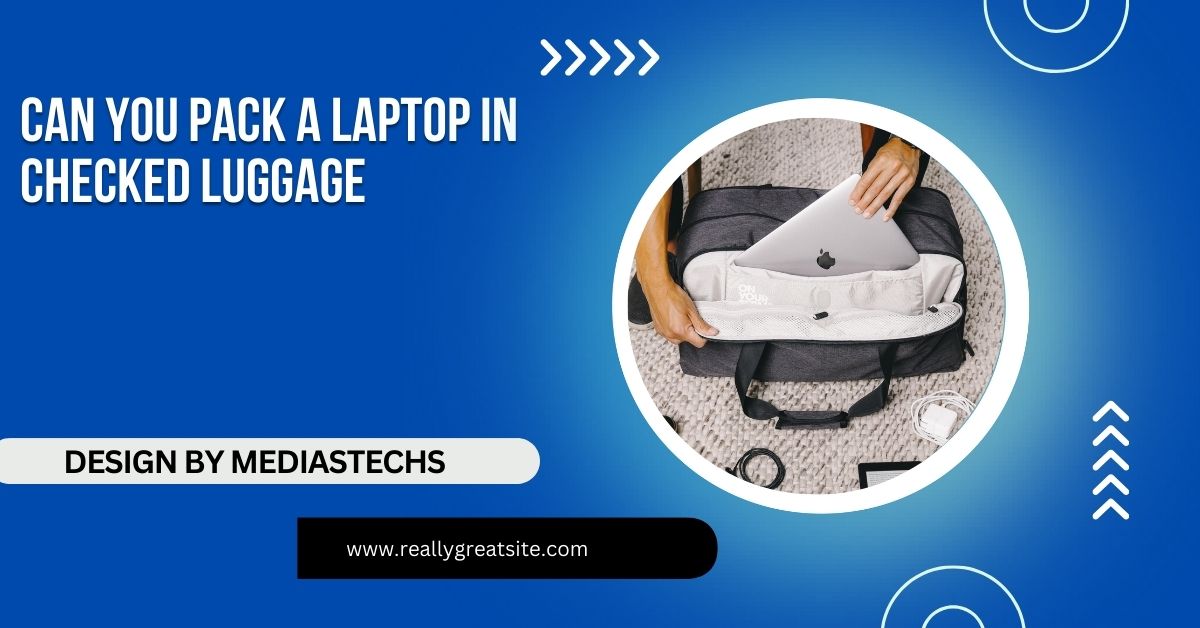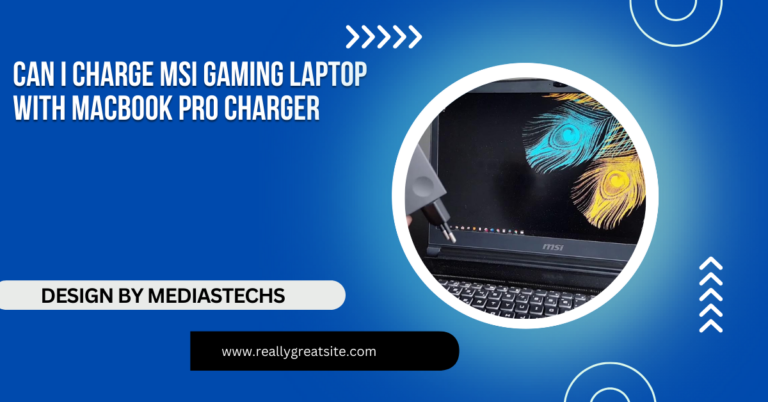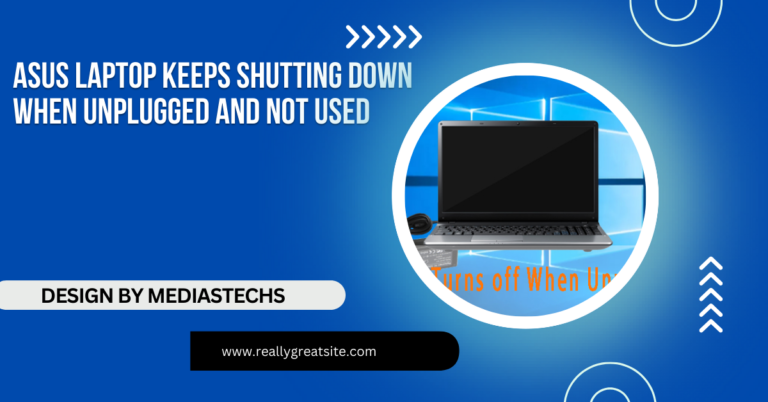Can You Pack A Laptop In Checked Luggage – A Complete Guide for Travelers
While can you pack a laptop in checked luggage, it is not recommended due to significant risks of damage, theft, and battery-related safety concerns.
In this comprehensive guide, we’ll explore the risks, regulations, and best practices involved can you pack a laptop in checked luggage, along with expert tips to help you travel with your electronic devices more securely.
Can You Pack a Laptop in Checked Luggage? The Short Answer
Yes, you can pack a laptop in checked luggage, but it’s generally not recommended. Most airlines, including the Transportation Security Administration (TSA) in the U.S., permit laptops in checked baggage, but there are significant concerns you should be aware of before you make this decision. These include the risks of damage, theft, and battery-related safety issues.
What Could Happen if You Pack Your Laptop in Checked Luggage?
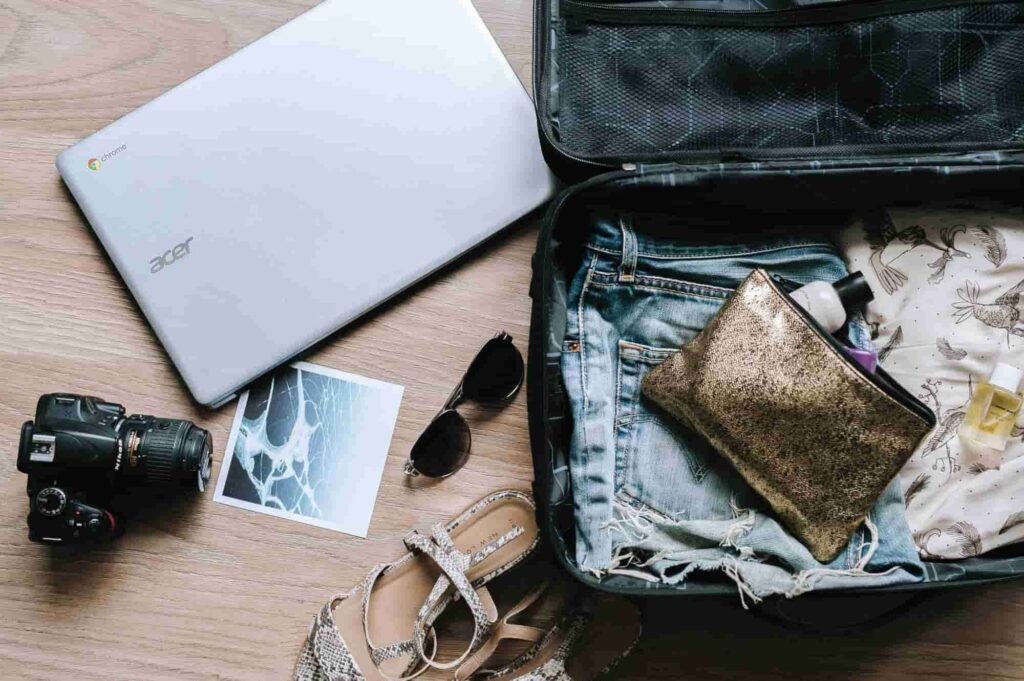
Packing a laptop in checked luggage carries several potential risks, ranging from physical damage to theft and even regulatory restrictions depending on the airline. Let’s take a closer look at why most experts recommend against it.
1. Physical Damage
One of the primary concerns when packing a laptop in checked luggage is the possibility of damage. Checked bags go through a lot of rough handling—think conveyor belts, heavy stacks of luggage, and potentially being thrown onto the baggage truck. Even if your laptop is placed inside a protective case, it could still sustain damage from the pressure or hard impacts, such as:
- Cracked screens: Laptops are vulnerable to physical impacts, which can easily crack or shatter the screen.
- Internal component failure: The vibrations and rough handling could cause damage to the internal components of the laptop, such as the hard drive, which might corrupt your data or render the device inoperable.
- Cosmetic damage: Even if your laptop survives, it might not emerge unscathed. Scratches, dents, and other cosmetic damage are common in checked luggage.
Read also: Is The Intel Ax211 Wired Or Wireless Laptop – A Comprehensive Guide!
2. Risk of Theft
Laptops are high-value items, and placing them in checked luggage increases the chances of theft. While airline staff and baggage handlers are trustworthy in most cases, there have been numerous reports of items being stolen from checked luggage. Thieves often target expensive electronics like laptops, tablets, and cameras.
- Airport theft is more common than you might think: In 2017, CNN reported that more than $2.5 million in property was stolen from checked luggage at major U.S. airports over a span of a few years.
- Lost luggage: Even if theft isn’t a concern, luggage can get lost, delayed, or misplaced, leaving you without your laptop for an extended period.
3. Lithium-Ion Battery Restrictions
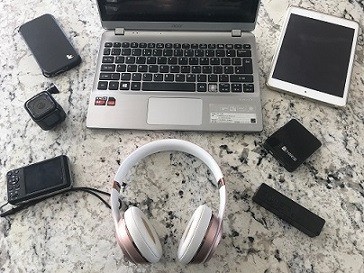
Most modern laptops use lithium-ion batteries, which are subject to strict regulations due to the risk of overheating and potentially causing fires. Lithium-ion batteries are known to be volatile in certain conditions, and the pressure and temperature fluctuations in an airplane’s cargo hold can exacerbate these risks.
- Battery restrictions: The FAA (Federal Aviation Administration) and international aviation authorities recommend keeping electronics with lithium-ion batteries in carry-on luggage, where they are more easily accessible in case of an emergency.
- Overheating and fire hazards: There have been incidents where lithium-ion batteries have overheated and caused fires in the cargo hold of airplanes, which is why many airlines impose stricter rules on checking devices with batteries.
Read also: Why Is Phone Vs Laptop Internet Speed Different – Phone vs. Laptop!
4. Limited Access to Your Laptop
Once you check your laptop in, it’s essentially out of your hands until you reach your destination. This means you won’t have access to your device for the entire duration of the flight, which could be inconvenient for several reasons:
- Work or entertainment: Many travelers rely on their laptops for work or entertainment during the flight. If your laptop is checked, you won’t be able to use it until you retrieve your luggage after landing.
- Emergencies: In the rare event of an emergency involving your checked bag, you won’t have quick access to your laptop to handle the situation or recover your data.
5. Insurance and Compensation Concerns
Many airlines have a limit on what they will reimburse for lost or damaged items in checked luggage. Unfortunately, electronics such as laptops often fall outside the scope of standard airline liability coverage.
- Limited liability: Most airlines limit their liability for lost, damaged, or delayed luggage to $3,500 on domestic flights and even less on international routes.
- No compensation for electronics: Many airlines explicitly state that they won’t cover damage to electronics in checked baggage unless you purchase additional insurance or a specific travel protection plan. Without insurance, you might not be reimbursed for a lost or damaged laptop.
TSA and Airline Rules for Laptops in Checked Luggage
The TSA doesn’t prohibit laptops in checked baggage, but it recommends travelers keep their electronics in their carry-on bags for convenience and safety.
TSA Guidelines for Traveling with Laptops
TSA guidelines state that laptops should be removed from carry-on bags and placed in a bin for X-ray screening during security checks. If you opt to check your laptop, it may undergo additional screening in your checked baggage. However, once it’s out of your hands, there’s little control over how it will be handled.
- Lithium-ion batteries: The TSA urges travelers to pack electronics with lithium-ion batteries in carry-on luggage, as these can be more easily monitored and accessed in the cabin.
- Customs and security checks: Some international airports might also subject your checked laptop to extra security checks, including opening the device and scanning its contents.
Airline-Specific Rules and Regulations
While the TSA provides overarching security regulations, each airline has its own specific rules when it comes to laptops and electronic devices. Some important considerations include:
- Battery restrictions: Most airlines allow batteries up to 100 watt-hours in both carry-on and checked luggage. If your laptop has a larger battery, you might be required to remove the battery before checking it.
- Smart luggage bans: Many airlines have banned so-called “smart luggage” with non-removable lithium batteries in the checked cargo hold. If your luggage has a built-in battery pack, be sure to check the airline’s policies before you travel.
- International travel restrictions: Certain countries may have stricter rules regarding lithium batteries in checked luggage. For instance, China has specific rules regarding battery watt-hour limits.
Why Carrying Your Laptop in Your Carry-On is the Safer Option
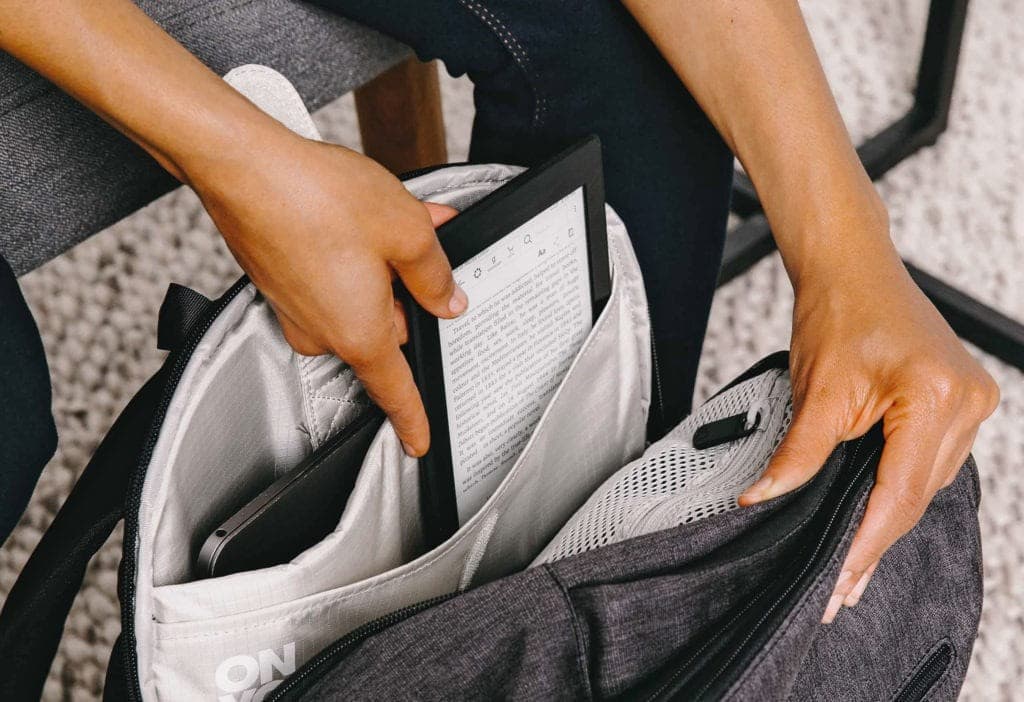
For the majority of travelers, keeping their laptop in their carry-on is the better option for several reasons:
- Less risk of damage: You have more control over how your carry-on is handled, reducing the risk of accidental damage from rough baggage handling.
- Immediate access: Carrying your laptop in the cabin allows you to use it during your flight, and you’ll also have quick access to it at any point during your journey.
- Enhanced security: When you carry your laptop with you, you can keep an eye on it at all times, reducing the likelihood of theft.
Read also: Can You Use Googone On Laptop – Safe or Risky!
How to Properly Pack a Laptop in Your Carry-On
When packing your laptop in your carry-on, follow these tips to protect it:
- Use a padded sleeve: Invest in a durable, padded laptop sleeve or case to protect your device from scratches, bumps, and shocks.
- TSA-friendly bags: Consider using a TSA-friendly laptop bag that allows you to quickly unzip and lay the laptop flat on the security belt without removing it from the bag.
- Don’t pack it too tight: Avoid overstuffing your carry-on bag with too many heavy items, which could put pressure on your laptop and cause damage.
- Secure your bag: Keep your carry-on bag with you at all times. Avoid placing it in overhead bins where it could shift and get crushed by other items.
Safeguarding Your Laptop in Checked Luggage (If Necessary)
Sometimes, despite the risks, you might be required to check your laptop. Maybe your carry-on is too full, or the airline’s regulations force you to check it. If you do need to check your laptop, here’s how to do it safely:
- Use a hard-shell case: Protect your laptop by placing it in a hard-shell laptop case or padded suitcase to absorb shocks and pressure.
- Remove the battery: If your airline allows it, remove the laptop battery and carry it separately in your hand luggage. This will reduce the risk of overheating in the cargo hold.
- Back up your data: Before traveling, ensure that all important data on your laptop is backed up to a secure cloud storage or external hard drive in case something happens to your device.
- Use tracking devices: Consider using a GPS tracker like Apple AirTag or Tile in your suitcase to help you locate it if it gets lost.
Conclusion
In conclusion, while it’s technically possible to pack a laptop in checked luggage, it’s not recommended due to risks of damage, theft, and battery-related issues. For safer and more convenient travel, keep your laptop in your carry-on. Always prioritize protection and backup for your data to ensure peace of mind.
FAQs
1. Can I take my laptop in checked luggage?
Yes, but it is not recommended due to risks like theft and damage.
2. What are the risks of packing a laptop in checked luggage?
Risks include physical damage from rough handling, theft, and battery overheating.
3. Are there regulations regarding lithium-ion batteries in checked baggage?
Yes, most airlines advise keeping lithium-ion batteries in carry-on luggage due to safety concerns.
4. What should I do if I must check my laptop?
Use a hard-shell case, back up your data, and consider removing the battery if allowed.
5. Why is it safer to carry my laptop with me?
Keeping your laptop in your carry-on reduces the risk of damage and theft, and provides immediate access during your flight.

